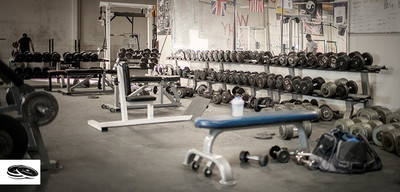Q. I want to stay lean, but I don't want to lose any muscle. How can I tell if I'm doing too much cardio?
We all know that to get lean you have to do cardio and have a great consistent nutritional diet. But did you know that too much cardio can be counterproductive? If you're a slave to the treadmill, elliptical, or stair master, you can actually lose muscle. Unless your goal is to look like Christian Bale in The Machinist, it's best to be really smart about your cardio?
We all know that to get lean you have to do cardio and have a great consistent nutritional diet. But did you know that too much cardio can be counterproductive? If you're a slave to the treadmill, elliptical, or stair master, you can actually lose muscle. Unless your goal is to look like Christian Bale in The Machinist, it's best to be really smart about your cardio.
If you don't know how much is too much, let me help!
The Great Cardio Myth
There is this horrible misperception in our society about fat loss. A lot of people think that if you starve yourself and do two or three hours of cardio each day, the fat is just going to melt off. Actually, performing too much cardio will put your body in a catabolic state and burn hard-earned muscle. The loss of muscle will not only reduce strength, but it will also slow down your metabolism. If your metabolism slows down too much, you'll have a tough time burning fat.
There's no exact answer for how much cardio is too much. But if you're not a distance runner, anything over 60-70 minutes per day is likely counterproductive—especially if you aren't consuming enough protein or calories to support the daily caloric expenditure. In order to build or maintain muscle, you need to eat enough food.
Symptoms of Cardio Overload
Too much cardiovascular training will also lead to injuries and over-training issues like aches and pains. You can also suffer from consistent bouts of fatigue and mood changes. Lots of running can also make your cortisol levels rise, which may suppress your immune system. Often, marathon runners experience colds and respiratory infections after they race because of their higher cortisol levels. If you're experiencing any of these symptoms, it's probably a sign you need to cut back the cardio.
Train Smart
Working out is supposed to be fun; it shouldn't be some long, arduous chore. If you are in the gym for more than an hour per day doing aerobic training, you're probably overtraining. If you're not in the business of marathon running or long-distance biking, this much cardio will take you 10 steps backwards instead of 10 steps forward.
I never do more than 60 minutes of cardio per day, whether I am playing basketball or sprinting. I know that if I do any more than that, it'll probably hurt me more than help me.
It's always good to remember that more is not always better. Be smart about your training. Keep it hard and efficient to burn fat, and most importantly, preserve muscle.

